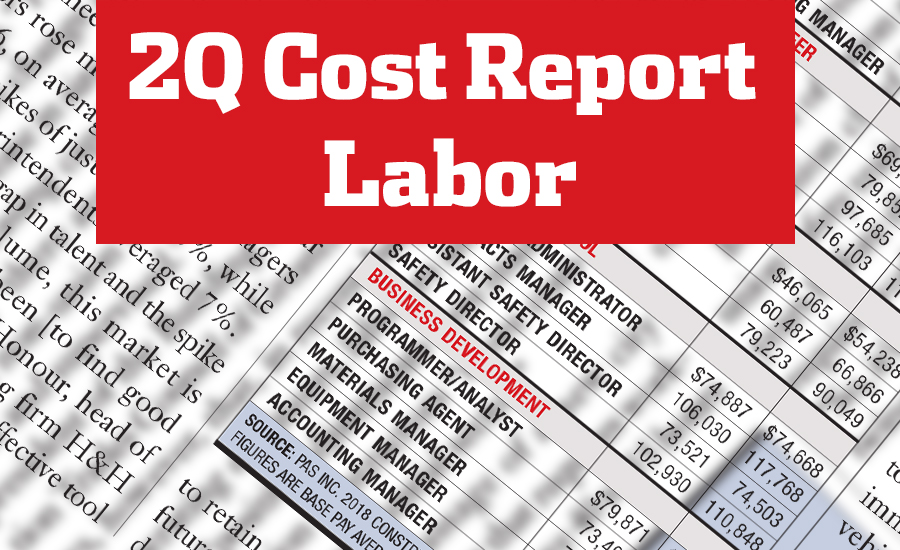While salary increases for professional construction staff remain steady, many employees are also seeing a big bump in bonuses. In recent years, average salary increases have remained relatively stable, tallying 3.7% in 2015, 3.6% in 2016 and 3.7% in 2017, according to data from compensation consultant Personnel Administration Services. In its 2018 survey of contractors and construction management firms, respondents estimated that salary increases would dip to 3.5% in 2018. However, Jeff Robinson, PAS president, says he expects they will remain steady at about 3.7%.
Although demand for talent is high, companies are “holding the line” on salaries, Robinson says. “Employers don’t want to raise fixed costs.” He says a rise in the U.S. Bureau of Labor Statistics’ Employment Cost Index could force salaries up more. The index “touched on 3% last year and went back down,” he says. “If it hits 3% and remains at 3%, that’s an indication we need to do something about our base pay situation.”
Fixed costs may be held in check, but Robinson sees many staffers gaining larger bonuses as employer profit margins improve. Firms “are focusing on rewarding the really key positions, where demand is high.” He says bonuses for project engineers, estimators and contract managers rose more than 20% last year over 2016, on average. Project managers saw bonus hikes of just under 10%, while those for superintendents averaged 7%.
“Between the gap in talent and the spike in construction volume, this market is the hardest it’s ever been [to find good candidates],” says Bob Honour, head of Charlotte, N.C., recruiting firm H&H Consultants. Bonuses are an effective tool to retain employees, but the promise of a future bonus does little to attract a candidate, he notes. “People have been burned on promises of bonuses, and they take those offers with a grain of salt,” Honour says.
The recruiter sees firms finding other candidate lures such as signing bonuses, temporary living expense allowances and relocation costs. The best employers “are figuring out unique ways to get people on board,” he adds. Health-care benefits, for example, can significantly affect job negotiations. “The number one problem I have with moving someone [from one firm to another] is the cost of health care,” he says. “We’ve had to renegotiate packages where the offer was a 15% salary increase, but when you factored in higher health costs [under the new employer’s plan], it was actually more like a 4% raise.” Large construction firms that can leverage size for better health-care rates use improved benefit packages to attract talent. “We see some national companies move in and steal people away from midsize contractors,” he says. “The midsize guys just can’t compete.”
According to Rob Herndon, president of Atlanta-based recruiting firm HCC Construction and Consulting Services, contractors are offering more per diems to employees coming in from outside the immediate workplace area, to cover food, vehicle allowances, gas, and living and relocation costs.
With the high demand for talent, younger candidates are gaining roles with greater responsibility faster in their careers. Megan Morris, vice president of Adams Consulting Group, notes that salaries are rising for people who may not be “quite as skilled as [employers] would like.” Recruiter Herndon cautions that there could be financial risks to employers in elevating newer employees with less experience too quickly.




Post a comment to this article
Report Abusive Comment